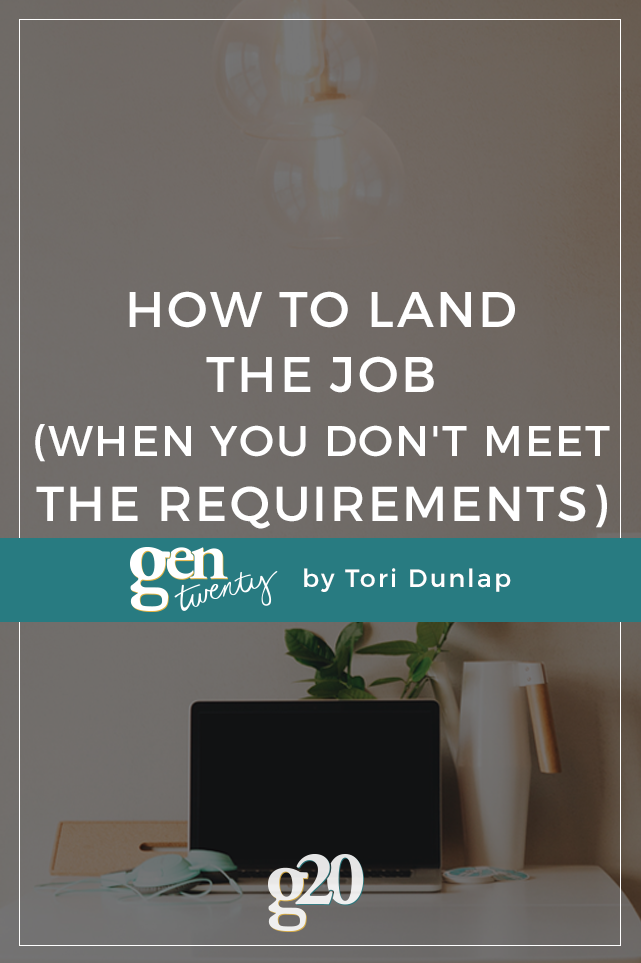
You’re searching for, say, a PR job, a new field you’re looking to move into. You don’t have much experience in PR (maybe an internship or an entry-level job at most). So when the dreaded, but inevitable, “3-5 years of experience” bullet crosses your vision, you don’t apply, fearing that your lack of experience will keep you from landing the job.
I was that person last year: a recent college grad who had enough experience to get an in-person interview (which made me feel accomplished) but not enough to seal the deal (which hurt like hell).
Though I had multiple jobs and internships — and two degrees — I couldn’t compete with people who had real work experience.
Flash forward a year, and I am now the head of marketing and communications for a global organization with over 5,000 employees. I also run a successful blog, and a #sidehustle doing social media marketing and consulting for clients.
So how did I get here? I had a great story that I told effectively.
A story that includes starting my first business at age nine. A story that includes dreaming up and successfully implementing great ideas. A story that includes my passions and drivers outside work.
Finding your story can secure you the job even you know you’re not qualified for on paper.
[clickToTweet tweet=”Finding your story can secure you the job even you know you’re not qualified for on paper.” quote=”Finding your story can secure you the job even you know you’re not qualified for on paper.”]
Ask yourself these questions to land the job even if you don’t completely match the job description:
1. What makes you unique?
My narrative as a kid CEO could have been a silly, irrelevant item I either glossed over or never mentioned. But instead, I used it to exemplify my drive, self-motivated attitude, and passion for entrepreneurship.
I’ve taken the skills I learned at a young age, and used them to constantly innovate at my current company.
Find your calling card, something that’s memorable. Think of it as your adult “college essay.” Have you worked closely with a non-profit to grow their revenue? Implemented an awesome mentoring program at work? Run a finance blog? Discover your unicorn feature and milk the hell out of it.
Learn how to tell your story in our free Job Application Webinar!
2. What skills can you bridge?
This one is key. What does bridging skills mean? You’re relating the skills you do have to the position you want.
No one did this better than my friend and coworker Hailey. Hailey works as a recruiter, but before that, she was a hostess at a restaurant post-graduation (here’s more of her story, a great supplement to this article).
On paper, Hailey had no recruiting experience. But instead, she tailored her entire application, successfully communicating how her skills were perfect for the job.
The position wanted someone who could juggle tasks. Hailey constantly handled impatient customers and multiple table assignments. The job wanted someone who could handle stress well. Hailey experienced and handled stress every night! The job wanted a team player. Hailey went out of her way to make sure both diners and her staff were happy.
“I think the moral of my story,” she said, “is that while some jobs may have more specific requirements than others, so much of being able to successfully pivot in your career comes down to being able to strategically connect the dots from where you have been to where you would like to be.”
Amen, Hailey!
3. How does being young or inexperienced work in this company’s favor?
Whether you’re just out of college, going into a new field, or shooting for a role years beyond you, it’s hard to exemplify how you add value. However, you can use these things strategically to your advantage.
If you’re coming from a different arena, brand this as providing a new perspective. You’re contributing different skills than other candidates are. Bring examples to illustrate how your skills will apply, like Hailey did in the example above.
If you’re fresh out of college, you’re going to hustle hard: express this boundless energy and enthusiasm. And if you’re slightly under-qualified, talk about your career trajectory and what you hope to learn from this role. Skills can be taught, genuine enthusiasm cannot.
Companies love knowing they’re going to hire someone who will stay and grow with them.
[clickToTweet tweet=”Skills can be taught, genuine enthusiasm cannot.” quote=”Skills can be taught, genuine enthusiasm cannot.”]
4. What makes you fun?
Experience matters, yes. But culture matters too. Your interviewers want to make sure you’re someone they can laugh with and relate to. They want to know what your passions are outside work (Travel? Theatre? Bowling?) and if you’re the kind of person they’d want to eat lunch with every day.
It’s tempting to appear mega-professional and suppress your personality. However, you want to be a real person, not a robot. Tell an (appropriate) joke. Discuss your volunteer work. Be excited to be there. It’ll showcase you as a well-rounded individual.
I know, there are few things more vulnerable than applying for a job, especially if you’re under qualified. But brainstorming and developing your story will help you leverage that gap. Comment below and let me know how these tips work for you!
[clickToTweet tweet=”How to Land the Job (When You Don’t Meet the Requirements)” quote=”How to Land the Job (When You Don’t Meet the Requirements)”]
